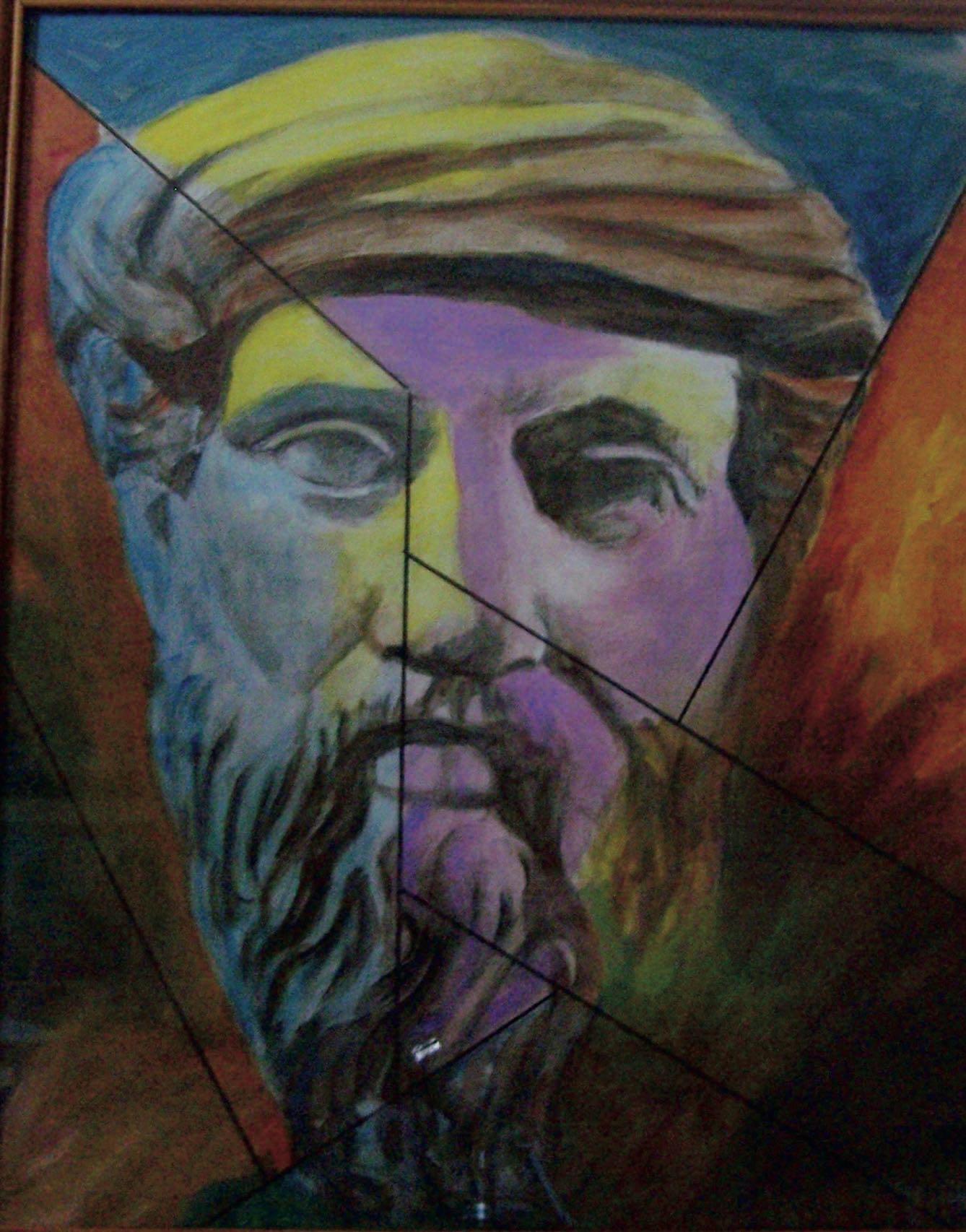Poging GOUD - Vrij
Pythagoras (570-495 BCE)
Philosophy Now
|February/March 2024
Daniel Toré looks beyond the mathematician to the philosopher.

"Isn't he the guy that invented triangles?" - Student of mine, 2023
Pythagoras of Samos is, without dispute, one of the towering figures of ancient philosophy. Any first-time reader of classical philosophy will inevitably be welcomed by the Big Three: Socrates, Plato, and Aristotle, and before leaving, they may give a polite glance at the Presocratics, before never looking back. However, in that over-the-shoulder moment, they will see some of the most intriguing and unique thinkers philosophy has to offer: Anaximander, Heraclitus, Parmenides, and amongst their number, the only deer in the herd with horns: Pythagoras. Considered more than merely human by some of his followers, Plato described him as 'a semi-divine master'. Or to quote Anthony Kenny, he is “honoured in antiquity as the first to bring philosophy to the Greek world...” (An Illustrated Brief History of Western Philosophy, 1998, p.1). Pythagoras also holds the VIP distinction of being a name recognised even by non-philosophers. However, even historians of philosophy might have a hard time describing his philosophical work, without just simply recalling how he was an influence on Plato. Still, it cannot be denied that the ripples created by this obscure character roughly 2,500 years ago are still moving today - although he himself is still a mystery.
How can somebody be that famous, and yet still unknown? That influential, and yet still ignored?
Simply put: just who exactly was Pythagoras?
Simply answered: we don't really know. In terms of both his work and biography, it's difficult to tell what can be accurately attributed to him and what's just a product of his fame.
Dit verhaal komt uit de February/March 2024-editie van Philosophy Now.
Abonneer u op Magzter GOLD voor toegang tot duizenden zorgvuldig samengestelde premiumverhalen en meer dan 9000 tijdschriften en kranten.
Bent u al abonnee? Aanmelden
MEER VERHALEN VAN Philosophy Now

Philosophy Now
Books
Lucy Weir takes a wheel of healing for an intellectual spin, Frederik Kaufman examines a theory of the origins of equality, and Frank S. Robinson doubts a holistic vision of life, the universe, and everything.
14 mins
October/November 2025

Philosophy Now
Moral Decision-Making for a Job Search
Norman Schultz wonders when working is wrong.
14 mins
October/November 2025

Philosophy Now
The Mediation of Touch
A conversation between Emma Jones and Luce Irigaray.
15 mins
October/November 2025

Philosophy Now
Edward Gibbon (1737-1794)
John P. Irish considers some principles of history through the history of a historian.
11 mins
October/November 2025

Philosophy Now
Karl Sigmund
is an emeritus professor of mathematics at the University of Vienna. He has made major contributions to evolutionary game theory and to the history of the Vienna Circle, who met regularly in Vienna from 1924-1936. Katharine Mullen talks with him about mathematics, and about the Vienna Circle.
5 mins
October/November 2025

Philosophy Now
Can Al Teach Our Grandmothers To Suck Eggs?
Louis Tempany wonders whether the problem is with the machines or with us.
7 mins
October/November 2025

Philosophy Now
Revisiting the Ontological Argument
Raymond Tallis contends that a definition of God cannot necessitate God's existence.
7 mins
October/November 2025

Philosophy Now
What My Sister Taught Me About Humanity
Lee Clarke argues that we need a more inclusive view of moral personhood.
13 mins
October/November 2025
Philosophy Now
Macmurray on Relationship
Jeanne Warren presents aspects of John Macmurray's philosophy of the personal.
4 mins
October/November 2025

Philosophy Now
Forced Vaccination
Naina Krishnamurthy asks if it's ethical or egregious.
8 mins
October/November 2025
Listen
Translate
Change font size

